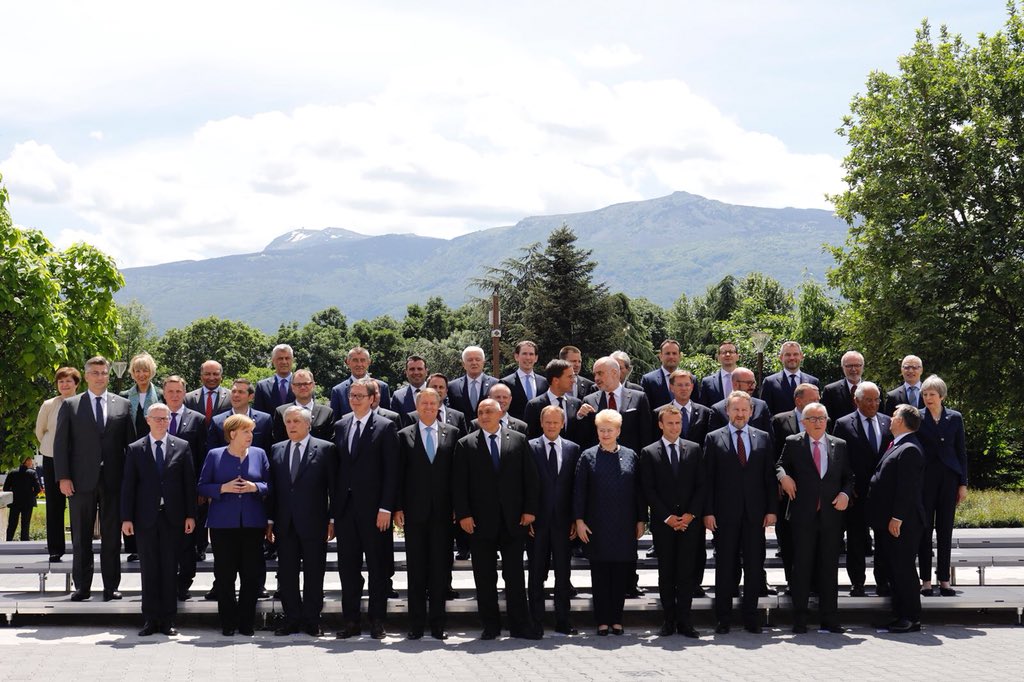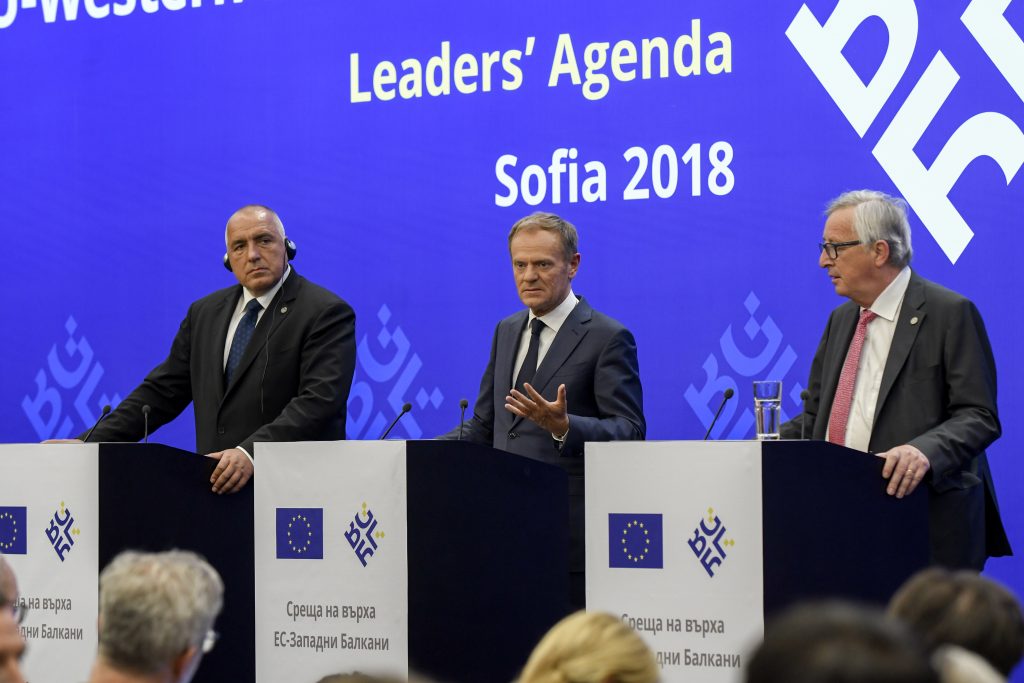The leaders’ gathered for the EU-Western Balkans Leaders’ Sofia Summit, dedicated to region’s European perspective, development and cooperation, adopted a Declaration confirming EU’s support for the region’s European perspective.
The leaders signed a statement of support for the Western Balkans digital agenda. The statement was signed by Prime Minister of Montenegro Dusko Markovic, President of Serbia Aleksandar Vucic, Chairman of the Presidency of BiH Bakir Izetbegovic, President of Kosovo Hashim Thaci, Prime Minister of FYROM Zoran Zaev and Prime Minister of Albania Edi Rama.
Furthermore, Energy Ministers of Serbia and Bulgaria, Aleksandar Antic and Temenuska Petkova, signed a joint statement on the construction of Bulgaria-Serbia gas interconnector.
Tusk: European integration of the Western Balkans is a top priority for the EU
“We should talk about substance, not about dates; historically, geographically, culturally, mentally, the region of the Western Balkans already belong to Europe and all 28 leaders agree that we are talking about European perspective of the region, but we don’t want to suggest unrealistic solutions such as ‘fast tracking’,” said European Council President Donald Tusk.
At the press conference following the EU-Western Balkans Summit, Tusk said that the Summit was long overdue, noting that the previous was held in Thessaloniki 15 years ago, which is why the leaders agreed to hold the next high-level meeting in two years in Croatia.
“This is the best evidence that European integration of the region is the top priority of the EU,” Tusk added.
Tusk said that there was certain scepticism among the leaders regarding the enlargement, but not because of the region itself, but rather because of the phenomenon of EU enlargement.
Prime Minister of Bulgaria Boyko Borissov thanked European leaders for coming to Sofia, noting that the meeting has brought about certain things, unimaginable a couple of years before, such as Presidents of Serbia and Kosovo Aleksandar Vucic and Hashim Thaci shaking hands over the connectivity agreement.
“There was much fear and discussion in Western media over region’s integration, but if we imagine the countries of the Western Balkans as a single country, than such a country has a GDP equivalent to that of Slovakia but a population smaller than that of Romania.
“Is that the big far and a threat of the EU? Is not better to negotiate than let other geostrategic players enhance their influence in the region?” asked Borissov.
He described what Macedonian and Greek Prime Ministers Zoran Zaev and Alexis Tsipras were about the share with their people as a positive development.
“With all of issues, with all the big geostrategic players in the world, it is clear that the only way for the EU to be successful is to stay united. I feel that the power of the EU lies in its unity,” Borissov concluded.
Declaration: Unequivocal support for the Western Balkans
In the Declaration, the EU reaffirmed its unequivocal support for the European perspective of the Western Balkans. “The EU welcomes the shared commitment of the Western Balkans partners to European values and principles, and to the vision of a strong, stable and united Europe, underpinned by our historic, cultural and geographic ties and by our mutual political, security and economic interests,” the declaration reads.
It further adds that, building on the progress achieved so far, the Western Balkans partners have recommitted to the European perspective as their firm strategic choice.
“The EU is determined to strengthen and intensify its engagement at all levels to support the region’s political, economic and social transformation, including through increased assistance based on tangible progress in the rule of law, as well as in socio-economic reforms, by the Western Balkans partners, ” the Declaration states.
The Union ”welcomes the Western Balkans partners commitment to the primacy of democracy and the rule of law, especially the fight against corruption and organised crime, good governance, as well as respect for human rights and rights of persons belonging to minorities.”
It also supports the Western Balkans partners pledge to continue strengthening good neighbourly relations, regional stability and mutual cooperation.
The EU, the Declaration reads, agrees to promote a market- and investment-friendly environment in the Western Balkans to move faster towards a digital economy and to sustainable and climate-friendly societies in line with the Paris agreement. Energy security will be prioritized, the Declaration adds.
The document also reads that countering terrorism and extremism, including financing, radicalisation and the return of foreign terrorist fighters require increased cooperation.
The EU also welcomed the contribution of the Western Balkans partners to its Common Foreign and Security Policy. Read the full Declaration here





